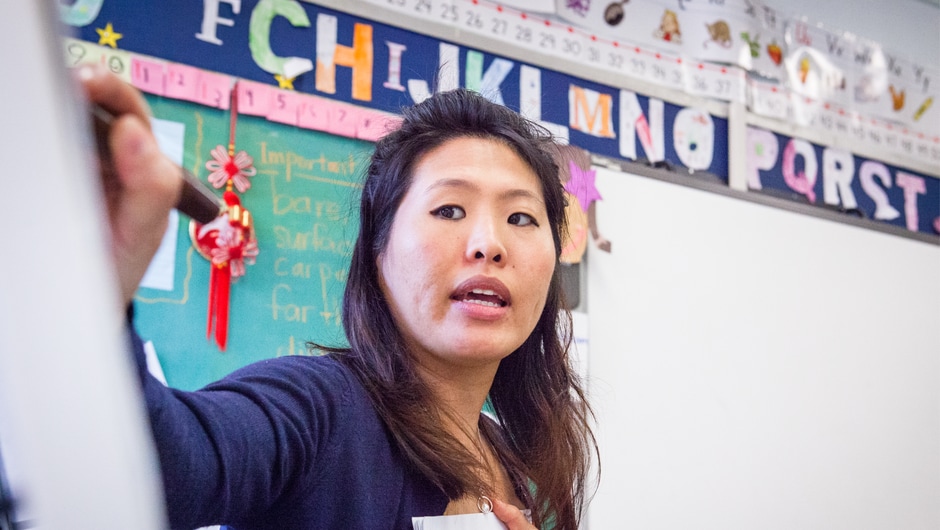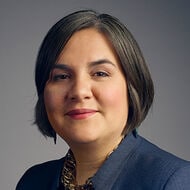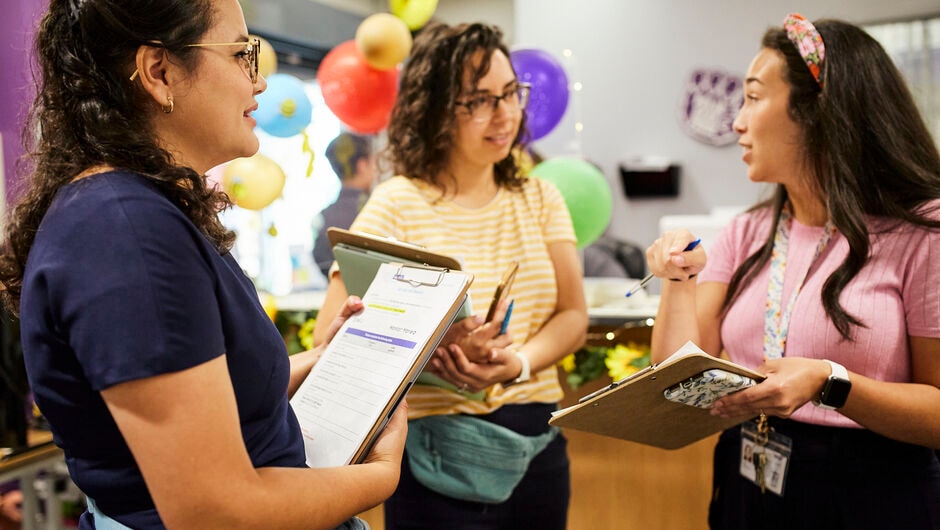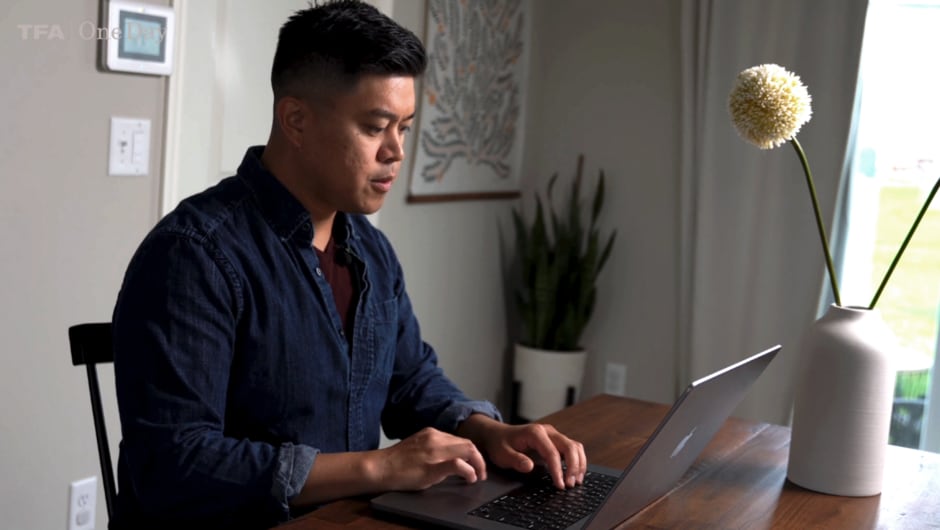The Young Activists Guide to Making Change
In this animated short, middle school students and a TFA alumna describe how they successfully rallied to provide free access to menstrual products in schools across Hawai‘i.
The Young Activists Guide to Making Change
In this animated short, middle school students and a TFA alumna describe how they successfully rallied to provide free access to menstrual products in schools across Hawai‘i.
September 2, 2022

Video Producer

Animator
Managing Director, Film + Video Projects
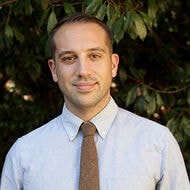
Director of Studio Production & Impact
View transcript
Riez: In the history of the Kingdom of Hawai‘i, Queen Lili‘uokalani was this powerful matriarch.
Alana: She spent her life advocating for Hawaiian rights and culture. And she was the inspiration behind our own advocacy work.
Riez: So, I’m Riez.
Alana: And I’m Alana.
Riez: We both go to ‘Ilima Intermediate School.
Alana: This is our teacher.
Mili: Aloha! My students call me Mili.
Reiz: Ms. Mili teaches STEM Lab and advises two student-led after-school clubs.
Group: Sparkle fingers!
Alana: And this is Paddy the Pad.
Riez: And together we set out to fight for the health and safety of students in our schools. And we’re here to tell you our story.
[Alana] STEP 1: Identify the Issue
Riez: In 2019, a middle schooler in ‘Ewa Beach was bullied for bleeding through their clothes.
Group: Oh my gosh. Oh my gosh.
Riez: They didn’t have access to menstrual products like a pad or a tampon.
Alana: This is known as period poverty.
[ON SCREEN] PERIOD POVERTY: Limited or inadequate access to menstrual products or menstrual health education.
Riez: What if we could prevent this problem from happening?
[Riez] STEP 2: Start Small
Alana: We began by addressing this issue locally at our school.
Riez: So, our club created menstruation stations to provide free period products.
Alana: Our first station was a cardboard box we decorated with streamers.
Riez: We made menstrual care kits that included motivational notes.
Alana: Our notes said things like:
Riez: “You’re amazing!”
Alana: and,
Riez: “You’re doing great!”
Mili: You all turned the negativity into positive support and creativity!
Riez: Soon, other teachers created their own stations.
Alana: And non-menstruating people began carrying menstrual products to support their friends and partners.
Student: Ugh, I got my period.
Group: I got you! We got you!!
Riez: Together, we were fighting the stigma around periods so no student at our school would ever be bullied for menstruating again.
[Alana] STEP 3: Dream Big
Mili: Y'all did such an amazing job changing the culture at our school.
Alana: Yeah! But we’re just getting started.
Riez: And you know, we asked ourselves: Well, what if every student across Hawai‘i had access to free menstrual products at their school?
Alana: Now we had our mission.
[Riez] Step 4: Grow the Movement
Riez: But how could we reach all of Hawai‘i’s schools!? We don’t even know how to drive yet!
Alana: The challenge felt too big.
Riez: So… we partnered with other groups around Hawai‘i fighting for the same cause.
Alana: Then, Ms. Mili met Hawai‘i State Representative Amy Perruso.
Rep. Perruso: Aloha!
Riez: Representative Perruso helped us write our first bill for free period products in public schools.
Student reading bill: free menstrual products have positive impacts on education (overlapping lines)
[Alana] Step 5:
[Alana and Riez] Spread the word!
Alana: We had a great idea and we had great partners, but it felt like no one else knew what we were up to—like no one was listening.
So we started to design merch!
Group: Googley eyes are in the, they’re kind of in the glitter. / Where are the googley eyes? / They’re in the glitter!
Alana: We created
Riez: stickers
Alana: and
Riez: buttons
Alana: and
Riez: posters.
Alana: and
Riez: We spoke with media outlets and we used Canva to design activist art to educate and encourage people on social media to support our cause.
Riez: Sometimes people ask us, “Why period poverty? Why are you working on this issue?”
Telia: This was personal. It’s a local problem that hurts my friends and other people around me.
Kaitlyn: You can’t solve poverty with just one bill, but you can chip away at it.
Cyri: We can solve problems little by little, and little things add up to be big things.
Kaitlyn: That’s what we’re doing.
[Riez] Step 6:
[Alana] Don’t Give Up!
Riez: That first year, we worked hard to write our testimonies.
Mili: Those testimonies were absolute fire!
Alana: But COVID stopped any bills from going forward.
Riez: The next year, we didn’t even get a hearing on the bill.
Alana: We were discouraged.
Riez: I was definitely considering of just like giving up.
But Ms. Mili reminded us to think about Queen Lili‘uokalani who never gave up.
Alana: We had to keep fighting for us. And for the students of Hawai‘i.
Riez: We took all the lessons we’d learned and the partners in our strong coalition, and we gave another round of strong testimony and…
Group: The bill passed!
Alana: Through this bill, our original hopes will come true: the state legislature will fund and provide free menstrual products to all public schools and charter schools across all of Hawai‘i.
Riez: Changing things takes time.
Alana: Each of us 8th graders learned from the leaders before us. We pass on strategies and traditions and values, just like Queen Lili‘uokalanii taught us to do.
Riez: A statue of her stands on the Capitol grounds, challenging us to honor our roots and build futures in which all of us can thrive.
Alana: Do you think we made Queen Lili‘uokalani proud of us, Ms. Mili?
Ms. Mili: Absolutely.
Alana: She spent her life advocating for Hawaiian rights and culture. And she was the inspiration behind our own advocacy work.
Riez: So, I’m Riez.
Alana: And I’m Alana.
Riez: We both go to ‘Ilima Intermediate School.
Alana: This is our teacher.
Mili: Aloha! My students call me Mili.
Reiz: Ms. Mili teaches STEM Lab and advises two student-led after-school clubs.
Group: Sparkle fingers!
Alana: And this is Paddy the Pad.
Riez: And together we set out to fight for the health and safety of students in our schools. And we’re here to tell you our story.
[Alana] STEP 1: Identify the Issue
Riez: In 2019, a middle schooler in ‘Ewa Beach was bullied for bleeding through their clothes.
Group: Oh my gosh. Oh my gosh.
Riez: They didn’t have access to menstrual products like a pad or a tampon.
Alana: This is known as period poverty.
[ON SCREEN] PERIOD POVERTY: Limited or inadequate access to menstrual products or menstrual health education.
Riez: What if we could prevent this problem from happening?
[Riez] STEP 2: Start Small
Alana: We began by addressing this issue locally at our school.
Riez: So, our club created menstruation stations to provide free period products.
Alana: Our first station was a cardboard box we decorated with streamers.
Riez: We made menstrual care kits that included motivational notes.
Alana: Our notes said things like:
Riez: “You’re amazing!”
Alana: and,
Riez: “You’re doing great!”
Mili: You all turned the negativity into positive support and creativity!
Riez: Soon, other teachers created their own stations.
Alana: And non-menstruating people began carrying menstrual products to support their friends and partners.
Student: Ugh, I got my period.
Group: I got you! We got you!!
Riez: Together, we were fighting the stigma around periods so no student at our school would ever be bullied for menstruating again.
[Alana] STEP 3: Dream Big
Mili: Y'all did such an amazing job changing the culture at our school.
Alana: Yeah! But we’re just getting started.
Riez: And you know, we asked ourselves: Well, what if every student across Hawai‘i had access to free menstrual products at their school?
Alana: Now we had our mission.
[Riez] Step 4: Grow the Movement
Riez: But how could we reach all of Hawai‘i’s schools!? We don’t even know how to drive yet!
Alana: The challenge felt too big.
Riez: So… we partnered with other groups around Hawai‘i fighting for the same cause.
Alana: Then, Ms. Mili met Hawai‘i State Representative Amy Perruso.
Rep. Perruso: Aloha!
Riez: Representative Perruso helped us write our first bill for free period products in public schools.
Student reading bill: free menstrual products have positive impacts on education (overlapping lines)
[Alana] Step 5:
[Alana and Riez] Spread the word!
Alana: We had a great idea and we had great partners, but it felt like no one else knew what we were up to—like no one was listening.
So we started to design merch!
Group: Googley eyes are in the, they’re kind of in the glitter. / Where are the googley eyes? / They’re in the glitter!
Alana: We created
Riez: stickers
Alana: and
Riez: buttons
Alana: and
Riez: posters.
Alana: and
Riez: We spoke with media outlets and we used Canva to design activist art to educate and encourage people on social media to support our cause.
Riez: Sometimes people ask us, “Why period poverty? Why are you working on this issue?”
Telia: This was personal. It’s a local problem that hurts my friends and other people around me.
Kaitlyn: You can’t solve poverty with just one bill, but you can chip away at it.
Cyri: We can solve problems little by little, and little things add up to be big things.
Kaitlyn: That’s what we’re doing.
[Riez] Step 6:
[Alana] Don’t Give Up!
Riez: That first year, we worked hard to write our testimonies.
Mili: Those testimonies were absolute fire!
Alana: But COVID stopped any bills from going forward.
Riez: The next year, we didn’t even get a hearing on the bill.
Alana: We were discouraged.
Riez: I was definitely considering of just like giving up.
But Ms. Mili reminded us to think about Queen Lili‘uokalani who never gave up.
Alana: We had to keep fighting for us. And for the students of Hawai‘i.
Riez: We took all the lessons we’d learned and the partners in our strong coalition, and we gave another round of strong testimony and…
Group: The bill passed!
Alana: Through this bill, our original hopes will come true: the state legislature will fund and provide free menstrual products to all public schools and charter schools across all of Hawai‘i.
Riez: Changing things takes time.
Alana: Each of us 8th graders learned from the leaders before us. We pass on strategies and traditions and values, just like Queen Lili‘uokalanii taught us to do.
Riez: A statue of her stands on the Capitol grounds, challenging us to honor our roots and build futures in which all of us can thrive.
Alana: Do you think we made Queen Lili‘uokalani proud of us, Ms. Mili?
Ms. Mili: Absolutely.



